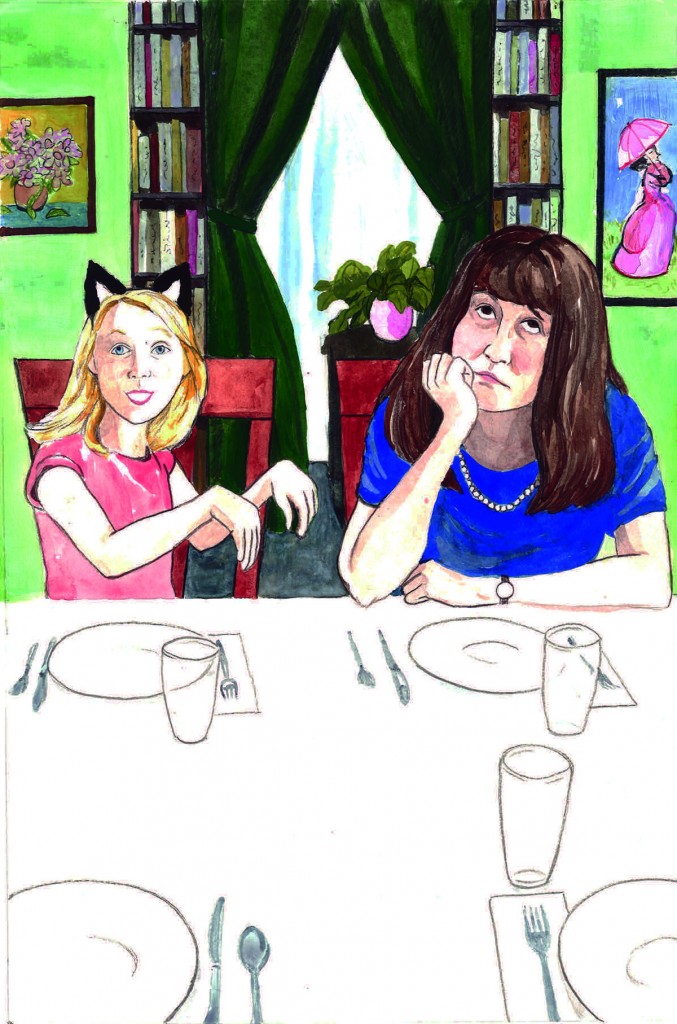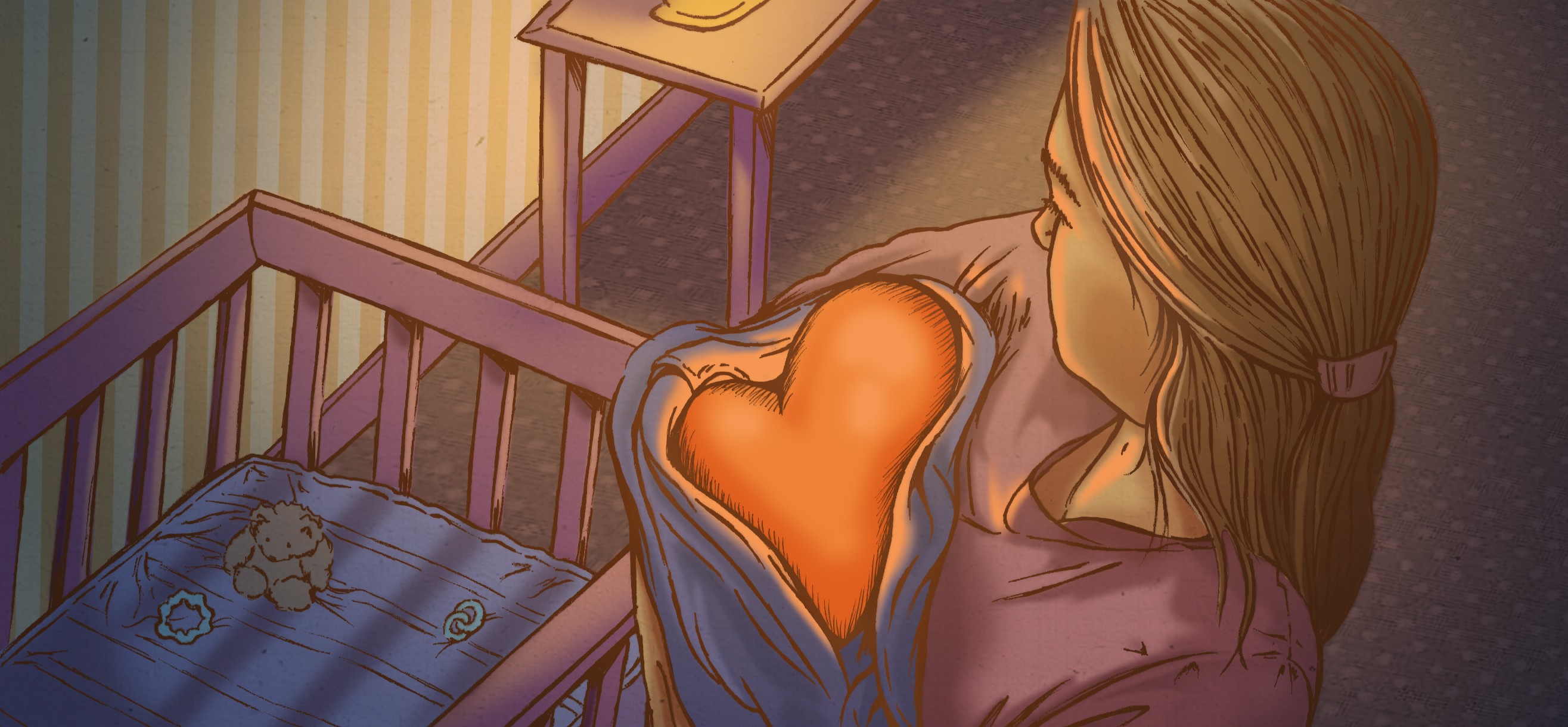In my first few years as a mother, I totally fell for the Mother’s Day hype. It’s very name, and the Kay jewelers commercials that run constantly, led one to believe that it’s a day in which those who constantly cater to the needs of others finally have their needs catered to, the one day among the other 364 in which mothers are given their due, honored for the terrific martyrs they are.
Awesome idea. Stellar. Too bad it’s a load of malarkey. I should clarify here that I’m a holiday person. I make homemade costumes for Halloween and throw elaborate themed birthday parties for my kids. I hurtle myself headlong into Christmas, like a moony teenager falling in love for the first time. Once, when my kids and I boarded a bus only to discover the meter was broken and no fare required, I declared it “Free Bus Day” and we sang jubilant songs on the theme, on and off all day.
I like celebrations. And I especially like celebrations in which the person being celebrated is me.
I respect, but do not understood, folks who try to ignore their birthdays, people who forbid their spouses and co-workers to make a big deal. David, my husband, is one such person, and it caused some arguments in our early years together.
[pullquote]
I’VE RECONCILED MYSELF TO THE FACT THAT I WILL NEVER GET A WHOLE DAY OF HUGS AND KISSES AND GRATITUDE. BUT I CAN GET FIVE TO TEN MINUTES.
[/pullquote]He has a particularly strong aversion to surprise parties, which I discovered when I threw him one for his twenty-third birthday in our living room. I convinced him to take a nap, and while he was sleeping, I hung streamers, sneaked out the German Chocolate Cake I’d spent two hours baking according to his mother’s recipe, and ushered in the guests. When everything was ready, I woke him from a dead sleep by crying: “The kitchen sink! It’s flooding! Come quick!” Still half asleep, he stumbled into the living room in his boxers and T-shirt and when everyone yelled “Surprise!” he about-faced with nary a word and marched right back into the bedroom.
Looking back, my surprise party plan was not as well-conceived as I’d thought. I nailed the surprise part—the party part, not so much.
Of course, in marriages we give our partners what we want. I have been waiting patiently for several decades for someone to throw me a surprise party—for my birthday, Mother’s Day, International Women’s Day, even Free Bus Day, I’m not picky.
Sometimes, I wonder if maybe David has been planning a surprise party all this time, and he’s just playing a long game, so that I’ll be absolutely flabbergasted when it happens. It’ll be Mother’s Day in my seventy-sixth year of life and David will contrive for me to play mah jong with my girlfriends (by that time, I will have started playing mah jong and calling my ladies “girlfriends”). But when I arrive, instead of being greeted just by Ethel and Martha and Frances (my friends’ names will age along with them), I’ll be greeted by a room packed full of friends, my children, my grandchildren, maybe even the barista of my favorite coffee joint, who’s always thought of me as a mother figure. The mayor might swing by for a minute, say a few words.
There will be not only a chocolate fountain but a prosecco fountain and a marble bust in the exact likeness of me. This will all be possible because one of my three kids will have become a billionaire, having invented the cure for the common cold. After everyone yells “Surprise!” David will turn to face me, leaning on his walker, and he will say: “All these years, you thought we were slacking off, but we were really planning this. Happy Mother’s Day “
And I will finally feel satisfied on Mother’s Day. I will finally feel adequately honored.
It is no surprise that on a recent Mother’s Day, David’s card to me read: “I love you. I hope you have a great day. Just manage your expectations.”
For my part, I think my needs are fairly simple. While I would certainly enjoy a ticker tape parade, I don’t expect one. All I want are heartfelt, homemade cards from each of my children, some kind of dessert with so many calories it’s illegal in some states, and the privilege of choosing the afternoon’s activity.
Of course, I can’t help but hope that, on this one day, my kids will tone down the bickering, or even eliminate it—for one day, how hard is that? I can’t help but dream that they might toss me a moment of gratitude, in the vein of, “Thank you for your joie de vivre and the priceless gift of hope”—that, and maybe pick up their dirty clothes off the bathroom floor.
I always tell my kids that “practice makes perfect—or at least, better” and this is true of Mother’s Day celebrations, as well. Over the past eleven years, David and I have gotten better at hopping around the Mother’s Day minefield, without detonating any explosives.
The primary lesson David had to learn was that it is his job to oversee the children’s card-making. This came as something of a surprise to him. It was a little like watching the sausages get made.
When the kids were in nursery school or Pre K, this was a non-issue because their teachers made the construction of such cards mandatory. Those cards were the best, the Rolls Royce of Mother’s Day cards. Quality materials, like heavy weight card stock and tempera paint, were used. Time was devoted to the enterprise. The cards were both funny and sweet, including phrases like: “Today, I wish for you a donkey!” and “I lov u mame beecaws u ar nis and pretee and giv me candee.”
But when the children were either too young for too old for nursery school, they fell into a dead zone of cardlessness. A two-year-old will not think to make a card for her mother. A six-year-old will think to do it but lack the follow-through to make it happen, hatching extraordinary plans and then getting distracted, permanently, by a stale gummy bear under the couch. Thus, there was one Mother’s Day early on in which I waited and waited for the official Presentation Of the Cards and alas, I waited in vain.
“Why didn’t you have the kids make cards for me?” I asked David.
“That’s their responsibility,” he countered.
Then I let forth a bitter laugh. An “Oh, to be as ignorant as you!” chuckle.
“Why do you think you get Father’s Day cards every year?” I asked. “I stand over them and make sure they do it. And not just a two-second scribble either. I make them go back and revise and give you the good stuff. Acrostics, Haikus. Drawings with verisimilitude.”
So David started overseeing card construction. He doesn’t have the natural ability of a Pre K teacher, and I’ve yet to receive a sonnet, but he gets the job done.
I’ve learned a thing or two myself. I’ve learned to lower my expectations. The lower, the better. If I could bring those expectations to street level, and then pulverize them underfoot, that would be ideal. As it stands, I’ve managed to get them from Sky High to about Fifteen Stories High, which isn’t half bad.
I’ve reconciled myself to the fact that I will never get a whole day of hugs and kisses and gratitude. But I can get five to ten minutes. And the good news is, I don’t just have the chance for these moments on Mother’s Day. Because I’m a mother every day.
Much as I’d like to shout “Action!” and instantly call up Hallmark moments, these moments tend to happen spontaneously, sometimes at the most inconvenient times. I’ve noticed children get very lovey when it’s way past their bedtime or you’re in the middle of talking to someone else about something very important or when you really, really have to go to the bathroom. No matter when they occur, I try to savor the tender moments. I have a whole folder full of heart-melting, no-occasion notes from my kids, as well as drawings of me and them holding hands in a field of flowers and hugging in a room full of cats and smiling while standing next to Frankenstein (mysteriously, I am always wearing a pearl necklace, though I do not own one. Pearl necklace, I’ve learned is the signifier for “Mother”).
That’s to say nothing of the moments we share for which there is no paper trail. The early mornings when my three-year-old clambers into my bed and nuzzles in my shoulder. The bedtimes when my nine-year-old will curl up next to me as I read Little Women aloud. The sporadic, sudden hugs from my eleven-year-old who is so much taller than me that my head nearly rests on his shoulder now.
String these moments together and you get one hell of a Mother’s Day. n
Nicole C. Kear is the author of the memoir Now I See You (St. Martin’s, 2014), and the forthcoming chapter book series for kids, The Fix-It Friends (Imprint, 2017).


